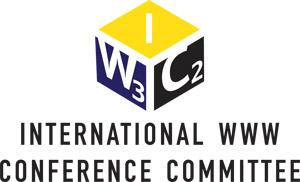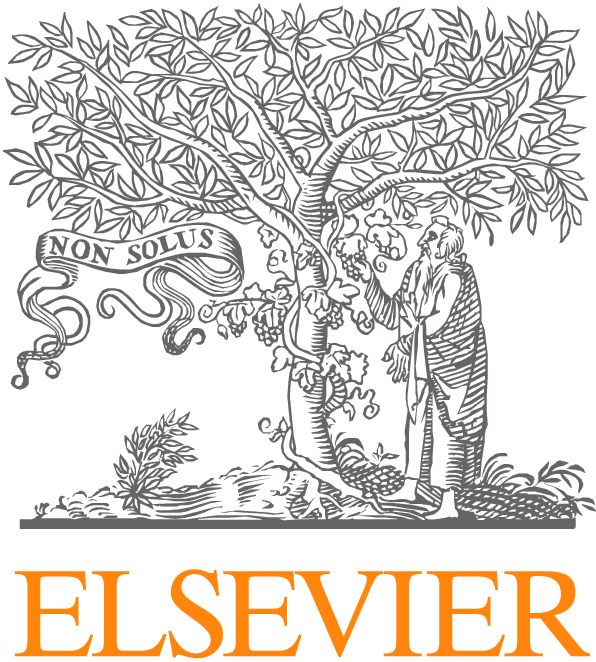The Web has evolved into an important platform for creating, sharing, and managing structured data that generates significant value in many applications. This success is tightly coupled to the continued growth of Web data in terms of volume, velocity, variety, veracity, and value. Large amounts of data are now available in RDF, JSON, CSV, or Microformats through APIs, streams, data dumps, or individual Web documents. The challenge to researchers is to develop tools and methods to fully exploit the potential of these resources.
The WWW 2016 Semantics and Big Data track aims at bringing together researchers from Semantic Web, Databases, and Artificial Intelligence to discuss open issues and solutions for the integration, description, management, analysis, and mining of Web data. We invite submissions on all aspects of data on the Web, including (but not limited to) the following:
- Integration: linking, joining, integrating, aligning, and reconciling Web data and ontologies from different sources
- Representation: languages and formats for representing data & meta-data, schemas, ontologies, knowledge graphs, and provenance information
- Mining and Curation: information extraction, crowdsourcing, discovery, data mining, cleansing, and consolidation
- Data Management, Update, and Query: maintaining, refreshing, and accessing large and dynamic Web datasets
- Data Analytics and Inference: techniques for deriving insights from Web data, such as prediction, reasoning, ranking, visualization, and question answering
- Tools, Datasets, Benchmarks: relevant digital assets made available to researchers and practitioners
- Applications: innovative applications in actual practical use, e.g., in enterprise, education, science, medicine, mobile, web search, social networks, etc.
We encourage authors to make their datasets, software, and experimental results available on the Web so as to promote transparency, reproducibility, and future reuse of their results.
For questions related to this call, please email: semantics-bigdata@www2016.ca
Area Chairs
- Markus Kroetzsch, TU Dresden, Germany
- Maria-Esther Vidal, Universidad Simón Bolívar, Venezuela
Program Committee
- Maribel Acosta, Institute AIFB, Karlsruhe Institute of Technology
- Harith Alani, KMi, The Open University
- José Luis Ambite, University of Southern California
- Pramod Anantharam, Kno.e.sis Center
- Anupriya Ankolekar, HP Labs
- Kemafor Anyanwu, North Carolina State University
- Lora Aroyo, VU University Amsterdam
- Naveen Ashish, University of Southern California
- Sören Auer, University of Bonn & Fraunhofer IAIS
- Stephen Bach, Stanford University
- Sean Bechhofer, University of Manchester
- Abraham Bernstein, University of Zurich
- Christian Bizer, University of Mannheim
- Carlos Buil Aranda, Pontificia Universidad Católica de Chile
- Andrea Calì, University of London, Birkbeck College
- Pierre-Antoine Champin, LIRIS
- Philipp Cimiano, Bielefeld University
- Mariano Consens, University of Toronto
- Oscar Corcho, Universidad Politécnica de Madrid
- Philippe Cudré-Mauroux, U. of Fribourg
- Bernardo Cuenca Grau, University of Oxford
- Alfredo Cuzzocrea, University of Trieste
- Enrico Daga, The Open University
- Claudia D'Amato, University of Bari
- Mathieu D'Aquin, Knowledge Media Institute, the Open University
- Brian Davis, DERI NUIG
- Michel Dumontier, Stanford University
- Basil Ell, Karlsruhe Institute of Technology
- Miriam Fernandez, Knowledge Media Institute
- Tim Finin, University of Maryland, Baltimore County
- Lorenz Fischer, University of Zurich
- Tim Furche, Oxford University
- Fabien Gandon, Inria
- Rafael Gonçalves, Stanford University
- Paul Groth, Elsevier Labs
- Tudor Groza, The Garvan Institute of Medical Research
- Claudio Gutierrez, Universidad de Chile
- Andreas Harth, AIFB, Karlsruhe Institute of Technology
- Olaf Hartig, University of Waterloo
- Tom Heath, Open Data Institute
- Aidan Hogan, DCC, Universidad de Chile
- H V Jagadish, University of Michigan
- Lalana Kagal, MIT
- Pavel Klinov, Complexible Inc
- Jacek Kopecky, University of Portsmouth
- Spyros Kotoulas, IBM Research
- Freddy Lecue, IBM Research
- David Martin, Nuance Communications
- Pablo Mendes, IBM Research Almaden
- Robert Meusel, University of Mannheim
- Peter Mika, Yahoo! Research
- Dunja Mladenic, Jozef Stefan Institute
- Pascal Molli, University of Nantes - LINA
- Roberto Navigli, Sapienza Universita' di Roma
- Axel Ngonga Ngomo, University of Leipzig
- Nadeschda Nikitina, Oxford University
- Josiane Xavier Parreira, Siemens AG Österreich
- Peter Patel-Schneider, Nuance Communications
- Terry Payne, University of Liverpool
- Dimitris Plexousakis, Institute of Computer Science, FORTH
- Axel Polleres, Vienna University of Economics and Business - WU Wien
- Cristina Sarasua, Institute for Web Science and Technologies (WeST). Universität Koblenz - Landau
- Ansgar Scherp, Kiel University and Leibniz Information Center for Economics, Kiel, Germany
- Stefan Schlobach, Vrije Universiteit Amsterdam
- Daniel Schwabe, Dept. of Informatics, PUC-Rio
- Oshani Seneviratne, Massachusetts Institute of Technology
- Juan F. Sequeda, Capsenta Inc.
- Amit Sheth, Kno.e.sis Center, Wright State University
- Kavitha Srinivas, IBM Research
- Divesh Srivastava, AT&T Labs-Research
- Steffen Staab, University of Koblenz-Landau
- Gerd Stumme, University of Kassel
- Fabian M. Suchanek, Télécom ParisTech University
- Eric Sun, Facebook
- Hideaki Takeda, National Institute of Informatics
- Kerry Taylor, Australian Bureau of Statistics & Australian National University
- Andreas Thor, University of Leipzig
- Nicolas Torzec, Yahoo! Inc
- Raphaël Troncy, EURECOM
- Giovanni Tummarello, Siren Solutions
- Jacopo Urbani, Vrije Universiteit Amsterdam
- Victoria Uren, Aston University
- Jacco van Ossenbruggen, CWI & VU University Amsterdam
- Ruben Verborgh, Ghent University - iMinds
- Gerhard Weikum, Max Planck Institute for Informatics
- Amrapali Zaveri, AKSW Group
- Antoine Zimmermann, École des Mines de Saint-Étienne

